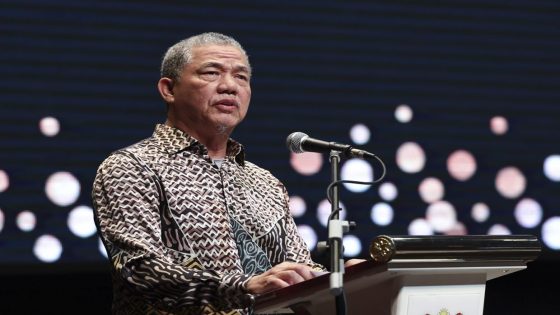Click here to view this content.
By the time she attempted to lift the equivalent of an adult male lion above her head, Emily Campbell had already roared onto the podium for a successive Olympic Games. Britain’s weightlifting queen fell short in her clean and jerk attempt of 174kg, but at least pulled out a show-stopping celebration as she wrote her name in the history books with her brilliant bronze.
As she blew a kiss to the crowd, Campbell, who won a silver three years ago in Tokyo, was unaware she had just become Britain’s first double Olympic weightlifting medallist since 1964. She walked to the back of the stage and attempted to perform a cartwheel, although it was more of a sideways spin. A career switch to gymnastics appears unlikely, but an appearance in the ballroom does not.
The Nottingham native later revealed she would be up for participating in Strictly Come Dancing, despite the recent allegations of bullying that have engulfed the long-running BBC dance show.


“If Strictly want me, I wouldn’t say no,” said Campbell, who offered a tongue-and-cheek assessment of her choreographed half-cartwheel. “Obviously it was the best cartwheel you’ve ever seen! It was a tribute to my coach. He asked for the cartwheel for a very long time.
“We’re very silly in training. I did it one day and he said you need to do that one day after your last clean and jerk. Where better to do it than the Olympics?”
And where better than the Olympics to smash out a personal best? Campbell started confidently in the snatch – the first of two lifts where competitors lift the bar all the way overhead with their arms locking out. She nailed 126kg on her third lift, bettering her previous career best of 124kg she set at the 2022 Commonwealth Games, but always found herself playing catch up to Korea’s Park Hyejeong, the 2023 world champion and the reigning Asian Games gold medallist.
She upped the stakes in the clean and jerk – the trickier, double-movement lift that demands superhuman levels of explosive strength and power – but was unsuccessful in overhauling the Korean with her 174kg attempt, as Hyejeong’s combined score of 299kg was enough for silver. At 288kg, Campbell’s was still a British record.
“But you have to believe in that moment, you can’t have any element of doubt,” said Campbell, who confessed to not knowing how much she was lifting late on. “My coaches gave me a bit of a b——ing after 169kg because they said I was too chilled out.”
Campbell’s relaxed persona was in stark contrast to some of her other competitors. Venezuela’s Naryury Perez Reveron shouted aggressively at her bar on each of her snatch attempts, but nothing topped China’s Li Wenwen. The reigning Olympic champion defended her title with ease but not without performing a wild shriek each time she marched up to the barbell.
At 24, Li is a generational talent. She completed just four lifts during the competition, expending minimum energy as she romped to gold. While her rivals started out with their entry snatches, this stacked superhero was backstage, her towel draped around her shoulders like some sort of invincible cape. For Campbell or Hyejeong, it was always going to be a dogfight for silver and bronze.
If the competition had been judged on hairstyles, though, Campbell was a shoe-in for gold. Her tri-coloured braided hair – complete with the Olympic rings sewn into the back – was a step up from the dyed blue and red buns she sported in Tokyo. “I had to pull out something big,” smiled Campbell. By lifting Great Britain to their 65th and final medal of these Games, she did just that.


Source Agencies



